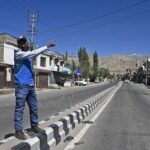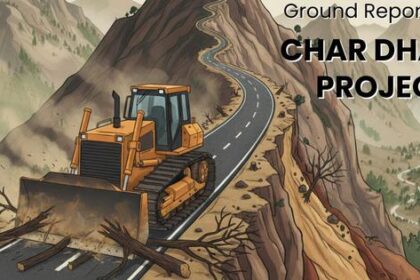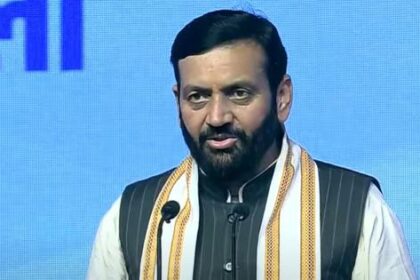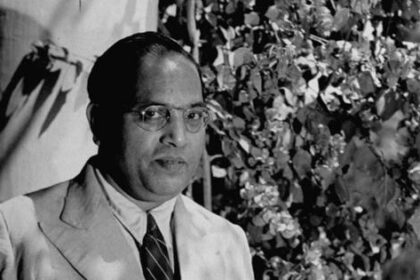Former Chief Justice’s comments on Babri Masjid stir controversy amidst ongoing debates on the Ayodhya dispute.
Former Chief Justice of India DY Chandrachud has stated that the construction of the Babri Masjid in Ayodhya during the 16th century represented a “fundamental act of desecration” at the location where the Ram Temple now stands. His remarks, reported by Newslaundry, present a sharp contrast to the Supreme Court’s judgement, which concluded that there was no evidence indicating that a pre-existing structure was demolished to create the mosque.
Chandrachud was part of the five-judge bench that issued the verdict on the Babri Masjid-Ram Janmabhoomi dispute on November 9, 2019. The mosque was demolished on December 6, 1992, by Hindu extremists who asserted that an ancient Ram temple had once existed at that site. Following the Supreme Court’s ruling, the land was designated for a trust responsible for constructing the Ram Temple, while a separate five-acre plot was allocated to Muslims for the construction of a mosque.
On January 22, 2024, Prime Minister Narendra Modi led the inauguration of the Ram Temple in Ayodhya, while construction of the temple complex continues. The Supreme Court had noted that although the Archeological Survey of India discovered evidence of a structure beneath the Babri Masjid, it did not definitively state that this structure was destroyed for the mosque’s construction. The report indicated that the structure dated back to the 12th century, suggesting a gap of approximately four centuries between its existence and the mosque’s construction.
During an interview with journalist Sreenivasan Jain, Chandrachud addressed criticisms directed at the Supreme Court’s decision. Jain pointed out that the dispute over the mosque’s inner courtyard stemmed from allegations of illegal activities, including desecration, attributed to Hindus at the site. He noted that this argument implied that Muslims were being penalized for not having committed similar acts in the mosque’s outer courtyard.
Chandrachud responded by questioning the historical context, asserting that the very act of erecting the Babri Masjid constituted a significant act of desecration. He emphasized the importance of acknowledging historical events, stating, “We forget all that happened? We forget what happened in history?” Despite his statements, Jain reminded him that the Supreme Court had ruled there was insufficient evidence to confirm that the earlier structure was demolished to create the mosque.
Chandrachud maintained that archaeological excavations had provided adequate evidence, although he acknowledged that the evidentiary value of such findings could be a separate matter. When asked whether the mosque’s demolition in 1992 could be justified if one accepted the history of desecration at the site, he firmly stated, “Not at all.” He reiterated that the Supreme Court’s judgement relied on conventional legal standards and evidence to reach its conclusions.
His comments have sparked backlash from various legal professionals and activists on social media. Advocate Prashant Bhushan accused Chandrachud of revealing a “communal mindset,” criticizing the notion that historical destruction could warrant current land claims. Another lawyer, Rohin Bhatt, alleged that Chandrachud echoed the sentiments of Hindutva organizations such as the Vishwa Hindu Parishad and the Rashtriya Swayamsevak Sangh. These developments highlight the ongoing contentious nature of the Ayodhya dispute and the differing interpretations of its historical context.








